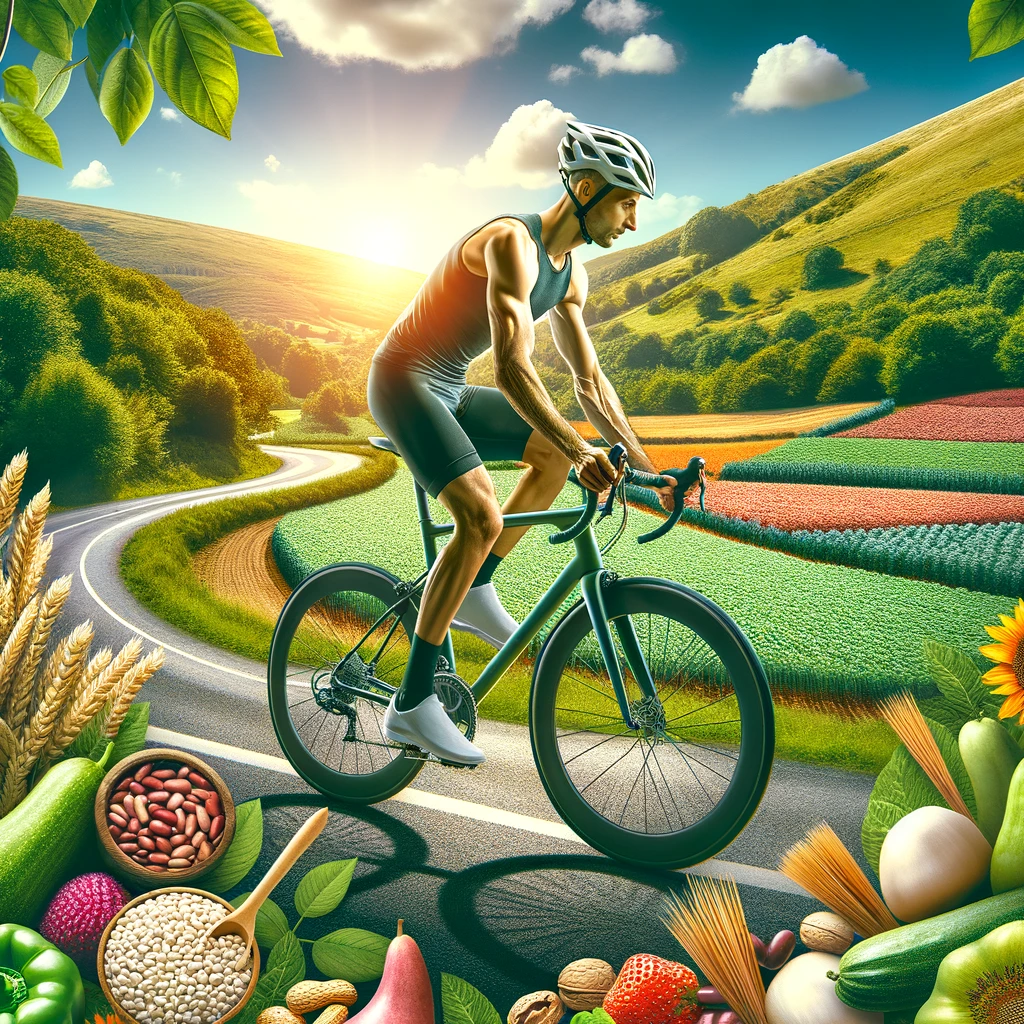PLANT powered Athletes

Cycling is more than just a form of exercise; for many, it’s a deeply engaging sport that combines endurance, strategy, and environmental awareness. As interest in plant-based diets continues to grow, many cyclists are curious about how they can support long rides and intense training sessions while adhering to a vegan or vegetarian lifestyle. Here, we’ll explore effective nutrition tips that cater specifically to plant-powered cyclists.
Before hitting the road, it’s crucial to fuel up with a meal that provides ample energy and is easy to digest. A great option for plant-based athletes is a hearty bowl of oatmeal mixed with a plant-based protein powder, topped with fruits like bananas or berries, and a sprinkle of nuts or seeds for added healthy fats. This combination offers a balanced mix of carbohydrates for energy, protein for muscle repair, and fats to keep you satiated.
Hydration plays a critical role in performance, especially on long rides. Start hydrating well before you set out and aim to drink small amounts frequently throughout your ride. Consider adding electrolyte tablets that don’t contain animal derivatives to your water to replenish the salts lost through sweat.
During long rides, consuming small, energy-dense snacks can keep your performance at its peak. Dates, for example, are a natural, quick source of energy. Energy bars made from whole, plant-based ingredients or a homemade trail mix with dried fruits, nuts, and seeds are also excellent for sustained energy.
After a long ride, recovery is just as important as the prep. A plant-based protein shake can be an effective way to deliver essential amino acids to tired muscles. Blending a vegan protein powder with almond milk, spinach, and a banana offers recovery nutrients and helps with muscle repair. Additionally, consider a tofu and vegetable stir-fry with quinoa or brown rice for a complete meal that supports muscle recovery and replenishment of glycogen stores.
While a well-planned plant-based diet can cover nearly all of your nutritional bases, certain nutrients like vitamin B12, vitamin D, and omega-3 fatty acids might require supplementation, especially for the high demands of endurance cycling. Consult with a dietitian to tailor your supplement needs according to your diet and cycling regimen.
Every athlete is different, and the best way to optimize your diet is by listening to your body. Keep a food diary to note how different foods affect your energy levels and recovery. Adjust your intake based on your training intensity and how you feel during and after rides.
Switching to or maintaining a plant-based diet as a cyclist can seem challenging at first, but with the right knowledge and preparation, it can be incredibly rewarding. Not only are you fueling your rides with nutrient-dense foods, but you’re also making a choice that benefits the environment and animal welfare. With these tips, your engine will be powered by plants, and ready to take on those long, rewarding rides.